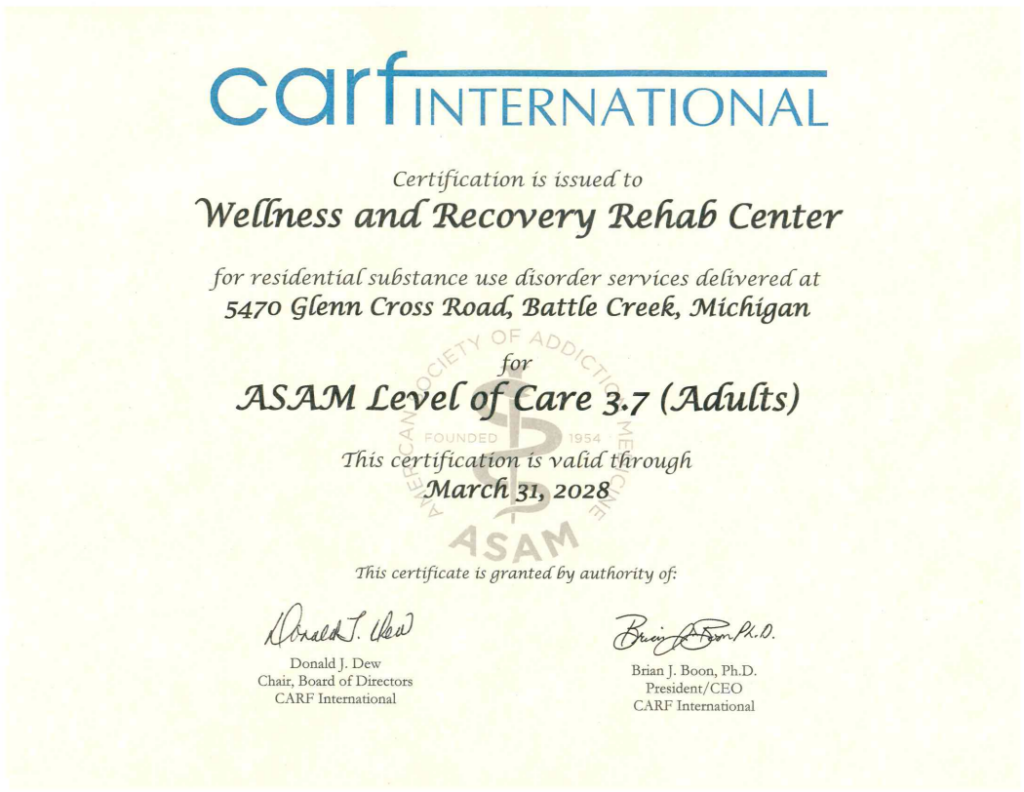As more people choose recovery, the hope is for that number to steadily decrease—year after year.
However, there is a lot to consider if you’re thinking about drug and alcohol detox, and one of the biggest considerations is whether you’ll opt for medical detox drugs in the process.
Starting treatment with medical detox drugs is often the first step in overcoming SUD. It’s not just about stopping drug use – it’s about doing so safely, effectively, and with the necessary medical supervision to minimize withdrawal symptoms and health risks.
Withdrawal can be uncomfortable, dangerous, and even life-threatening, depending on the substance involved. That’s where medical detox drugs come in.
These FDA-approved medical detox drugs help individuals manage withdrawal symptoms while stabilizing their health and preparing them for the next phase of recovery.
Detoxing from certain substances without medical supervision can be physically and psychologically overwhelming. For some drugs, withdrawal can even be severe or fatal.
Here are the main reasons why using medical detox drugs during the healing process is crucial:
Depending on the type of substance use disorder you or a loved one struggles with, withdrawal symptoms can range from flu-like symptoms to seizures, extreme agitation, or even psychosis. Medical detox drugs ease the intensity of these symptoms.
A supervised detox ensures that medical intervention is available immediately if any potentially dangerous complications arise.
Detox isn’t the end; it’s the beginning. We use medication to stabilize patients and then help them transition into further therapy and treatment. Medical detox drugs allow individuals to go into this continued treatment with a clear mind and improved well-being.
At Wellness and Recovery, we create customized detox plans that will match your specific needs and symptoms, ensuring you get the care and help you deserve, every step of the way.
Different substances will require different types of medications to help safely manage withdrawal.
Methadone helps reduce cravings and withdrawal symptoms without producing a high, while buprenorphine is a partial opioid agonist that eases withdrawal and lowers the risk of overdose.
During benzodiazepine withdrawal, doctors will often turn toward long-acting benzodiazepines, such as Diazepam or Clonazepam. While it may seem counterintuitive, tapering these medical detox drugs can prevent more dangerous withdrawal effects, such as seizures or panic attacks.
While there are currently no FDA-approved medical detox drugs for stimulant detox, many medical professionals turn to antidepressants to help regulate mood swings and depressive symptoms. To help reduce anxiety and manage rapid heart rate, beta-blockers are often used.
Every individual detoxes differently, which is why our team at Wellness and Recovery offers 24/7 medical monitoring to adjust your medications as needed.
We also take a comprehensive approach to your care, meaning medical detox drugs are just one part of the equation. Our therapeutic support and holistic treatments also help you or your loved one regain balance, both in mind and body.
Not all patients respond to withdrawal or detox the same way. Certain factors play a role in how withdrawal symptoms manifest and how medications should be administered, such as:
It’s imperative to take all of these factors into consideration before crafting a detox plan for each individual’s needs.
A one-size-fits-all approach doesn’t work. That’s why at Wellness and Recovery, we closely monitor your response to detox medications and adjust dosages as needed to:
This dynamic and individualized approach ensures patients receive the safest, most effective detox plan for their unique needs.
Without continued care, the likelihood of relapse is often extremely high, especially in the first weeks to months after initial withdrawal. Additional care and treatment after detox is often imperative for a sustainable and healthy recovery.
Some reasons why further treatment is imperative include:
While detox helps remove substances from the body in a safe manner, it doesn’t heal the underlying psychological, emotional, or behavioral patterns that drive substance use.
Further treatment, either through inpatient or outpatient options, helps individuals get the care they need and address the root causes of their SUD or co-occurring mental health disorder.
Even after detox, individuals experience post-acute withdrawal symptoms (PAWS) like mood swings, anxiety, and intense cravings. Without the right support, they’re at high risk for relapse.
Continued treatment helps reduce the risk of individuals not knowing how to handle triggers or other high-risk situations after detox ends.
Detoxification addresses the physical dependence, but comprehensive treatment afterwards is vital for sustained recovery.
Through therapies like cognitive behavioral therapy (CBT) and dialectical behavior therapy (DBT), you can learn crucial coping skills that enable you to navigate challenges, manage cravings, and build a fulfilling life free from substance dependence.
At Wellness and Recovery, we ensure every patient has a clear, structured path forward after detox, whether that means transitioning into residential rehab, a partial hospitalization program (PHP), or an intensive outpatient program (IOP).
We provide around-the-clock medical supervision to ensure detox and continued treatment are as safe, comfortable, and structured as possible.
Our experienced medical team will carefully monitor your withdrawal symptoms, administer medications, and adjust treatment plans in real time to support your unique journey to recovery.
At Wellness and Recovery, we don’t just focus on removing substances from the body – we focus on treating the whole person. That means we’re focused on your physical, emotional, mental, and spiritual health to ensure a holistic and comprehensive recovery.
Our unique approach includes:
We offer various different levels of care for your needs after you have completed initial detox and withdrawal.
Here’s what comes after detox:
Patients will live on-site at our boutique-style facility, receiving comprehensive care that includes:
Inpatient rehab is best for:
By removing individuals from external stressors, triggers, and access to substances, inpatient rehab provides the time, space, and support needed to develop a solid foundation for sobriety.
A PHP typically includes:
In most cases, a PHP is best for:
Our PHP at Wellness and Recovery provides structured care while gradually reintegrating individuals into daily responsibilities. This helps them adjust to real-world challenges without losing therapeutic support.
An IOP is a more flexible treatment option that allows patients to continue therapy while resuming work, school, or family responsibilities. Unlike a partial hospitalization program, an IOP requires fewer weekly treatment hours, making it ideal for those transitioning to more independent recovery.
An IOP typically provides the following during treatment:
An IOP is usually recommended for:
An IOP provides ongoing guidance and accountability while allowing individuals to rebuild their lives and reintegrate into society without losing access to professional support.
Whether you need intensive residential treatment, structured outpatient support, or ongoing therapy, we’re here to provide personalized, evidence-based care every step of the way.
We understand that facing substance use or mental health challenges can be incredibly difficult, and we’re here to offer a helping hand. At Wellness and Recovery, our focus is on providing care that truly meets you where you are, supporting you every step of the way.
We combine proven therapies with a caring, personalized approach to help you understand what you’re going through, develop healthy ways to cope, and build a stronger, more hopeful future. We’re committed to helping you find your path to healing and a better life.


